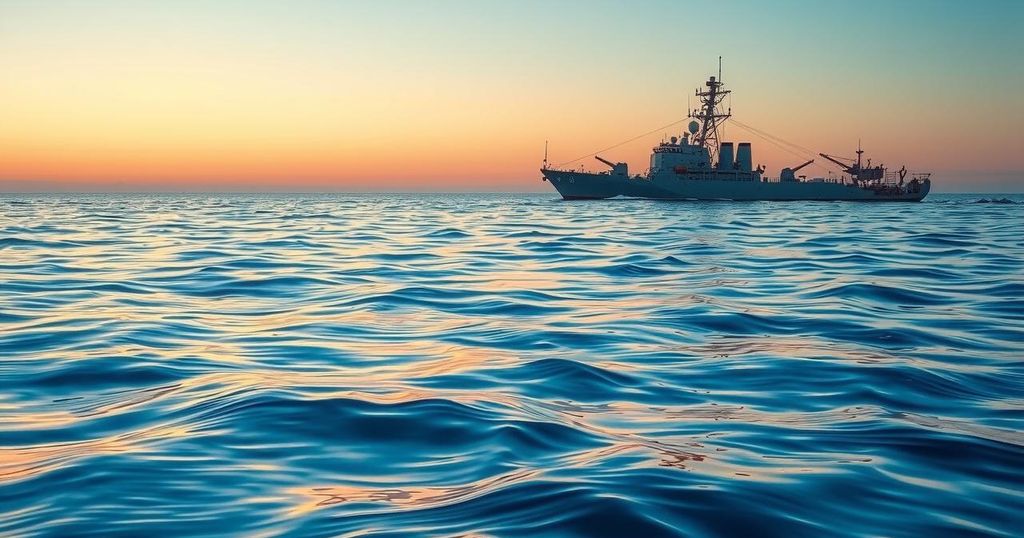Argentina Enhances Naval Patrols Against Illegal Foreign Fishing Activities
Argentina has launched naval patrols to counter illegal foreign fishing activities, targeting nearly 400 vessels, mainly tied to China’s fishing fleet. The Navy has deployed aircraft and corvettes to monitor these vessels as tensions rise over the shortfin squid fishing season. Environmental concerns regarding overfishing and unauthorized fishing operations by foreign fleets persist, prompting the need for stringent enforcement of maritime rights.
Argentina is intensifying its defense against foreign fishing operations encroaching on its maritime borders. The Argentine Navy has implemented patrols aimed at deterring illegal fishing, particularly targeting about 400 vessels primarily affiliated with China’s distant-water fleet that have been found near Argentina’s exclusive economic zone.
To enforce this initiative, Argentina has deployed two aircraft and two corvettes to monitor these foreign vessels, many of which are suspected of turning off their tracking systems to illegally enter Argentine waters. The ongoing shortfin squid fishing season, valued at approximately $2 billion, has attracted fleets from various nations, including China, Taiwan, South Korea, and Spain, leading to heightened tensions in the region.
Incidents of illegal fishing have previously resulted in conflicts, such as the 2016 case where Argentina’s Coast Guard sank a Chinese trawler caught illegally fishing within its territorial waters. In addition to illegal fishing activities, China has been exploring legal means to expand its influence in the South Atlantic by collaborating with local fishermen or employing foreign-flagged vessels to circumvent regulations.
A recent report by the Argentine nonprofit Environmental Policy Circle uncovered that ten Chinese vessels were operating without proper registration under foreign flags, disguising their origins while exporting their catch back to China. Furthermore, a new agreement between the province of Santa Cruz in Argentina and Hongdong Fisheries of China has raised additional concerns. Although this letter of intent does not grant Hongdong Fisheries rights to operate in Argentine waters, it suggests port assistance and infrastructure development, including upgrades to five provincial ports and the establishment of new shipyards and fishing plants.
Environmental advocacy groups have issued warnings regarding potential overfishing in the South Atlantic that could threaten squid populations, disrupt marine ecosystems, and negatively impact tourism. The Argentine Ministry of Defense has asserted its commitment to closely monitor the situation and to uphold its maritime rights to protect its national resources.
In summary, Argentina is actively reinforcing its maritime sovereignty by deploying naval patrols against illegal fishing, particularly from foreign fleets associated with China. Reports of noncompliance and potential agreements with foreign companies underscore the need for vigilance. The government remains dedicated to safeguarding its marine resources while addressing environmental concerns stemming from overfishing and unauthorized fishing practices.
Original Source: san.com




Post Comment